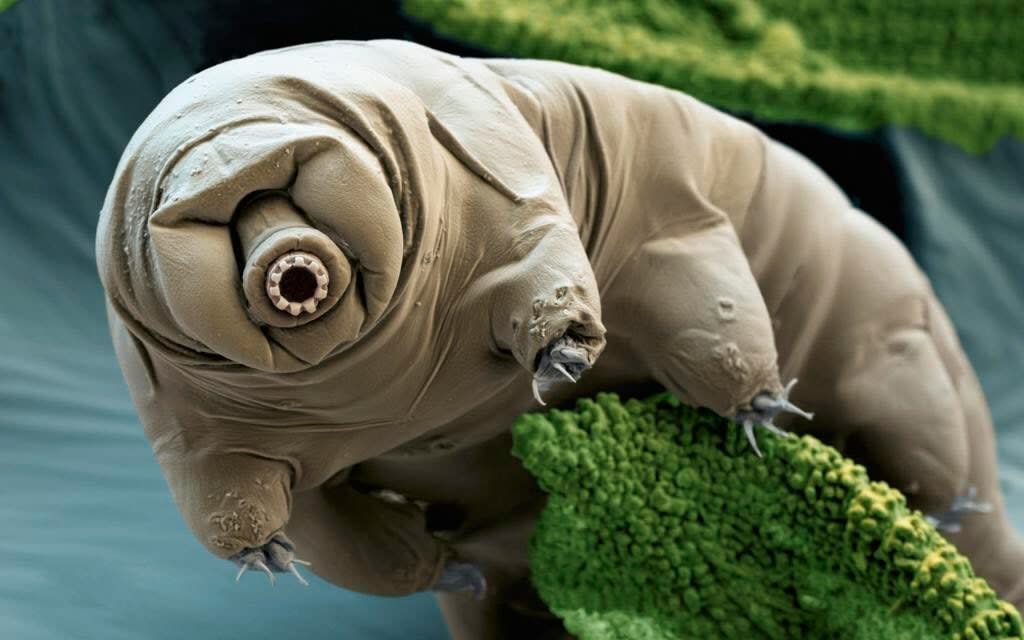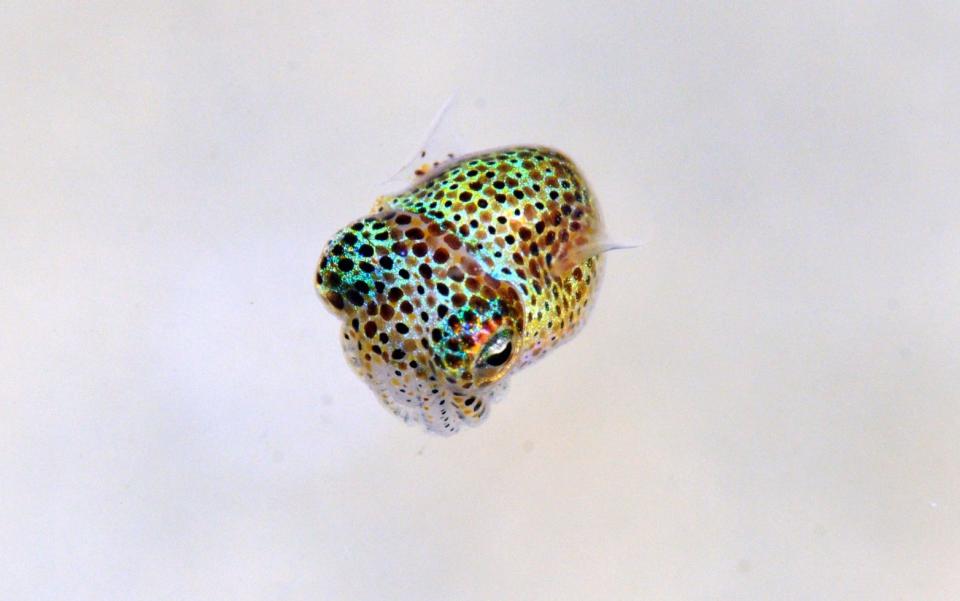Baby squid and 'water bears' set to become Nasa's newest tiny astronauts

- Oops!Something went wrong.Please try again later.
- Oops!Something went wrong.Please try again later.
NASA's next trip to the International Space Station this week will include a few extra passengers than usual - more than 5,000 microscopic creatures being used to investigate the impact of zero gravity and long-term space travel on the human body.
The special cargo, which will be on board SpaceX's Falcon 9 rocket, will comprise 128 glow-in-the-dark bobtail squid and 5,000 tardigrades - tiny creatures known as "water bears" because they resemble the animals under a microscope.
Tardigrades are useful for research because they are virtually indestructible.
"Some of the things that tardigrades can survive include being dried out, being frozen and being heated up past the boiling point of water," said Thomas Boothby, assistant professor of molecular biology at the University of Wyoming who is leading the experiment.
They can survive thousands of times as much radiation as we can and they can go for days or weeks with little or no oxygen.
"They've been shown to survive and reproduce during spaceflight, and can even survive prolonged exposure to the vacuum of outer space."
Scientists hope the lessons learned from the water bears' resilience can be applied to astronauts.

The tardigrades will be joined by a separate consignment of 128 baby bobtail squid, which are being sent to the station by the University of Florida.
They are part of an experiment designed to focus on how microbes, which are vital for a healthy digestive system, react with human tissue in space.
Bobtail squid, which are only three millimetres long, glow in the dark, making it easier for scientists to track the impact of bacteria on the body.
"Animals, including humans, rely on our microbes to maintain a healthy digestive and immune system," said Jaimie Foster, who is conducting the experiment.
"We do not fully understand how spaceflight alters these beneficial interactions."
Meanwhile, China has successfully docked a spacecraft with its embryonic space station.
The space station, called Tiangong - or heavenly palace, is expected to become fully operational next year.
Loaded with supplies, including meals such as shredded pork with garlic salt, the purpose of the mission is to pave the way for China to send astronauts to the station which is expected to remain in orbit for 15 years.

